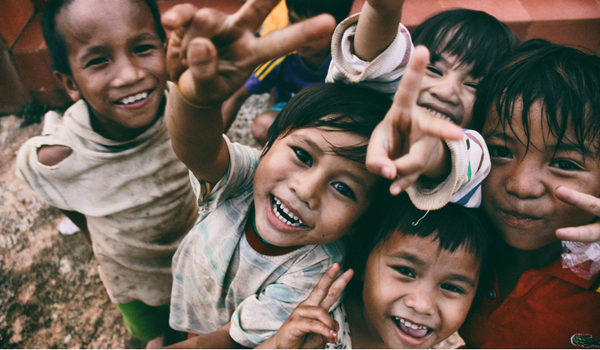
Holy Week can sometimes be thought of as Humility Week. Stories from this week are often preached and taught as moral examples of Jesus’ humility, that according to Philippians 2:7-9 God became nothing. On this week Jesus rode triumphantly on a pathetic donkey, did a slave’s job and washed his disciples’ feet, and endured the ultimate humiliation of hanging naked on a cross. It is a beautiful illustration that those who are powerful can lay down their power in order to serve the most vulnerable people.
But what if there is an additional lesson in Jesus’ activity during Holy Week? When we zero in on the humanity of Jesus, we are reminded that Jesus moved about in the world as a member of the vulnerable population. He was a carpenter’s son, not part of elite society. He kept company with prostitutes and lepers, and eventually walked the fate of a criminal. When Jesus washes the feet of other men, this was also a picture of a vulnerable person serving other vulnerable people.
The celebrity culture infiltrates our everyday lives by making us feel like only the extraordinary people have worth. We put them on platforms, pay them a lot of money, and aspire to be like them. Ellen DeGeneres, the beloved talk show host regularly places even children on her show—kids who can do remarkable things like memorize the periodic table, win surfing competitions, and sing and dance with charisma. This is all well and good—it is fun to celebrate special talents in people and in children. But the radical and subversive nature of the Holy Week is that the life giving work of God takes place via everyone, even the most ordinary ones among us. It is not only the ones who hold power in society, but the vulnerable and marginalized people who can deliver life-changing goodness to those in their communities.
What this means for our children is that while it is important to recognize that children are, even in our modern day, one of the most vulnerable people in society requiring our protection from harm, they are also precisely the people through whom the work of God is accomplished. They are not passive recipients but active agents, not ministers-in-training but leaders in changing the world.
Therefore our job as adults with certain privileges over children is to ensure we remove the barriers erected in the world that prevents them from exercising their moral agency. We must provide access for children to live out their God-given talents and calling.
One of my favorite recent examples of giving young people access is this story covered by the New York Times about a 17 year old in a high school in Kansas, who began a journalistic profile of their principal leading to some questions about the principal’s credentials and eventually resulted in the principal’s resignation. To me, what was so scandalous about this story isn’t that the principal fell in disgrace, but that those in authority over the young journalist—her teacher, the school superintendent, and the board, continually gave permission for her to follow her curiosities. Furthermore, this young journalist’s right to independent control over editorial content was protected by state law, the Kansas Student Publication Act. Clearly, truth-telling was this young woman’s gift, but it had to find partnership with the adults and systems in her life for her to fully exercise her vocation.
As the Church celebrates the Holy Week, let’s remember the weeks following it, when we live out resurrection hope in our families, communities, and beyond, that everyone is included in this beautiful calling. For those who unleash goodness, justice, beauty, compassion, and love are all of us, including the smallest ones. We are equal partners with the children in ministering healing to a wounded world. We must bring them into our board meetings, solicit their opinions in policy-making, and anoint them with blessing to go bravely into their calling.
This is the Good News of Holy Week: the most radical work of salvation come in the most ordinary packaging.
The smallest shall be the greatest.
Join us at Raising Children UnFundamentalist












